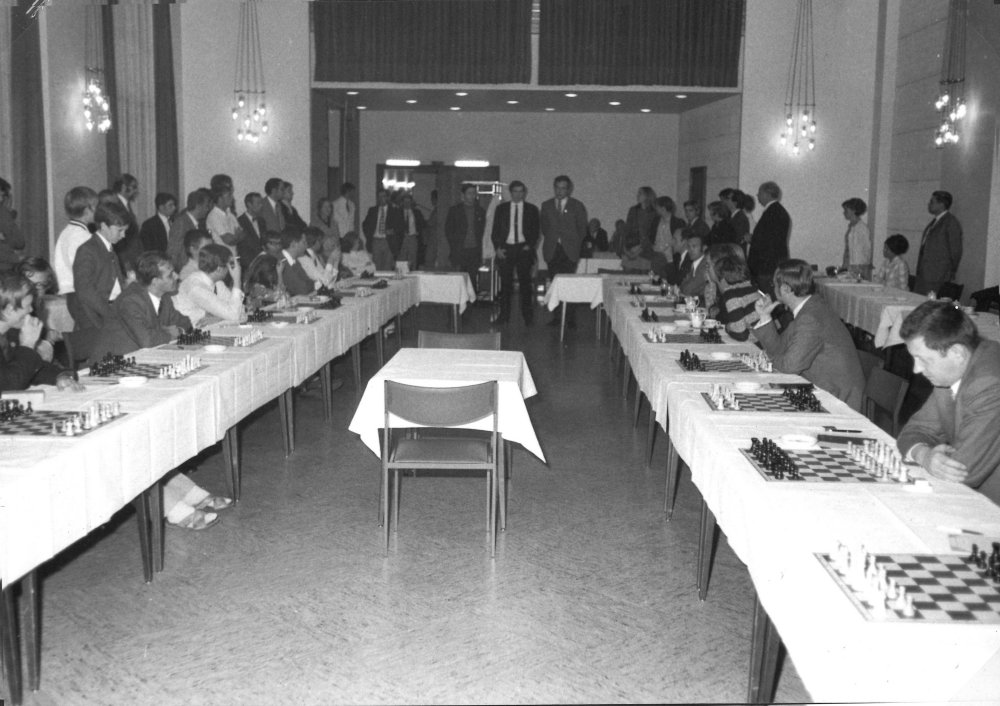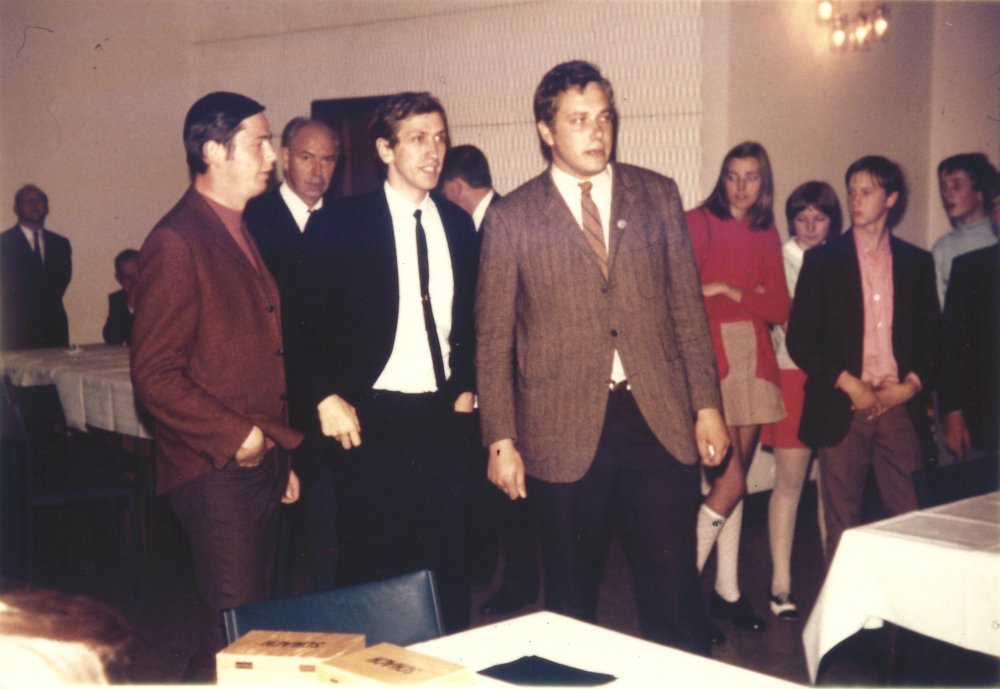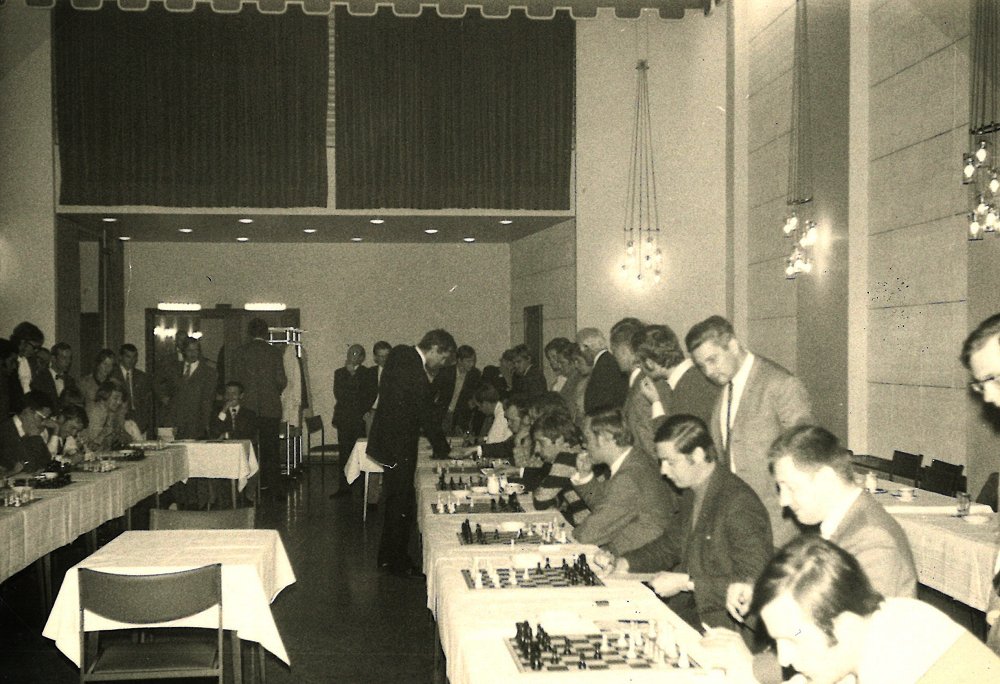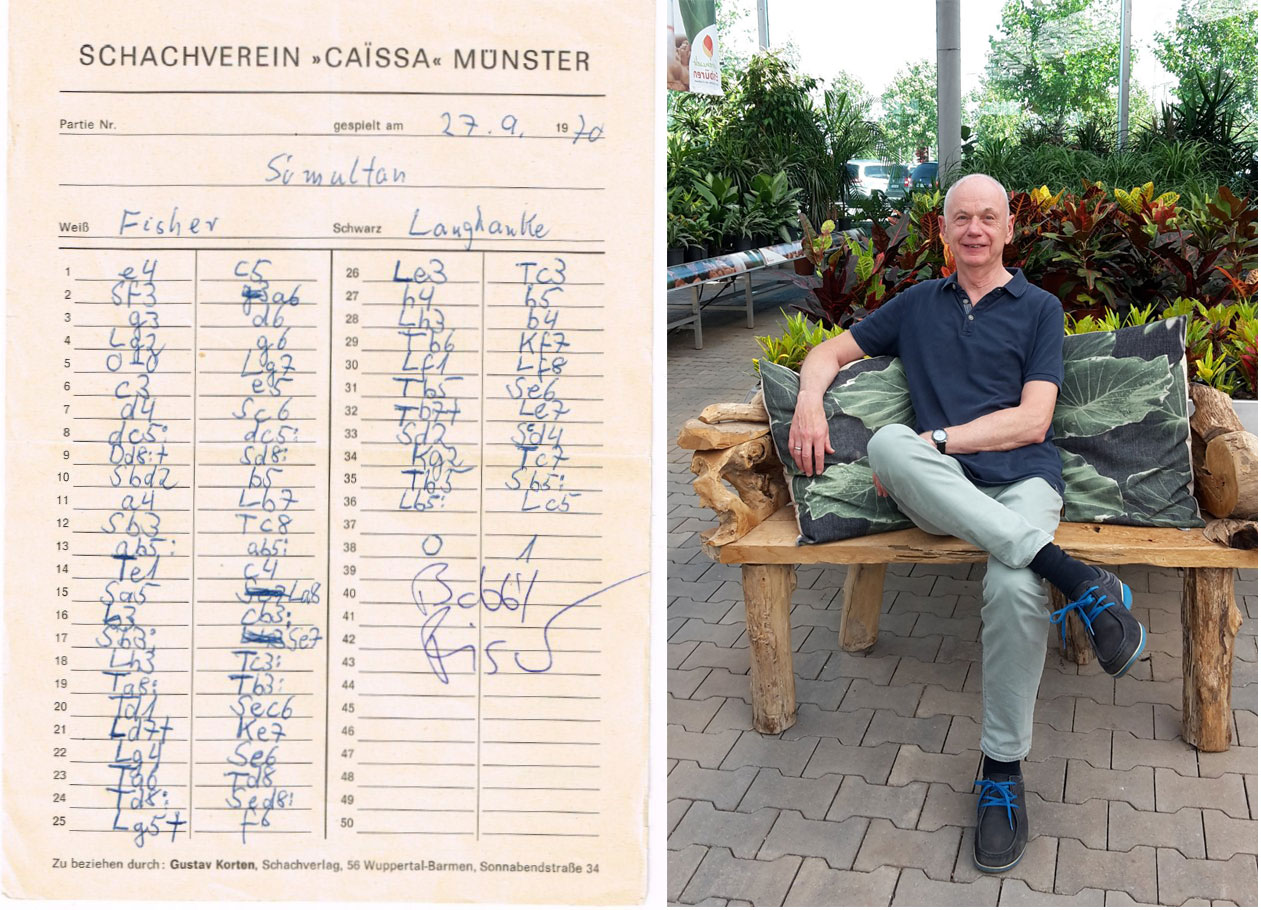


The article by André Schulz about Bobby Fischer's simul in Münster 1970 brought back memories. After all, I had picked up Fischer at his hotel in Siegen to bring him to Münster, and I also escorted him back to Siegen after the simul.
I was 22 years old at that time and studying economics at Münster University. At the Chess Olympiad in Siegen I had worked as an aide (as did Otto Borik, now Editor-in-Chief of the German chess magazine Schachmagazin 64). We had the task to provide readable notations of the games for the daily bulletin that was printed during the night.
Because I had just returned from an extended stay in England my English skills were considered to be good enough, and Norbert Rauch, the president of my chess club in Münster, asked me to pick up Fischer at his hotel and to bring him to Münster by train...which was more difficult than I had thought. In fact, we almost did not make it.

Fischer flanked by Günther Langhanke (left) and Norbert Rauch (right), the organiser of the simul
I arrived around noon at Fischer's hotel. But the hotel staff was even hesitant to call Fischer at this time of the day, they flatly refused to disturb the eccentric American.
But the receptionist gave me the number of Fischer's room and pressed the phone into my hand which allowed me to call him and to tell him what I wanted while mentioning the name "Hort". Fischer said he would immediately come down to the lobby, and I asked the guy at the reception to call a taxi that would bring us to the station.
Ten minutes later there was still no sight of Fischer. I was starting to get nervous and under the misgiving stare of the receptionist I contacted Fischer again, indicating that our train would leave soon. Fischer again promised to come soon. Two minutes later he indeed appeared. His whole luggage was a copy of the current issue of the Chess Informant which he had in his hand.
However, the staff had not bothered to call a taxi. Apparently, they had deemed that as unnecessary because nobody believed that Fischer would keep his promise to come.
Fortunately, an American chess fan appeared and used the opportunity to offer to drive us in his car all the way to Münster. But Fischer rejected this offer. However, I could persuade the American to bring us at least to the station. Because I still had to buy tickets we almost missed the train.
On the train Fischer was extremely talkative and inquired again and again about German radios and their technical details. His pocket chess set was used to analyse the game Uhlmann vs Spassky from the Olympiad in Siegen and Fischer tried to prove that Uhlmann had missed a win (the game ended in a draw). At the Olympiad I had kept score of this game, and I had also attentively followed the post-mortem between Spassky and Uhlmann which now allowed me to contribute to Fischer's analyses.
After the simul, Fischer was also very agreeable and together with some other players in the simul we went to a Chinese restaurant to have dinner.
When asked who he thought was the strongest of his 20 opponents he named Ulrich Nehmert, who had drawn his game against Fischer. And in fact, at that Ulrich was indeed our strongest player.
I think, Fischer was particularly pleased that we all were younger than he was. Apart from Norbert Rauch we were all students and easygoing with Fischer. The "dignitaries" who usually came to his simuls to officiate were just not present.
The next day I brought him back to his hotel in Siegen and he thanked me for my efforts and gave me his pocket chess set made of Argentinian leather. I asked him to sign and I still have it today.
Norbert Rauch, the organiser of the simul, soon withdrew from chess and became a dentist. However, it is nice that he has kept the documents of that event for such a long time.

Langhanke, the second player on the right with black, played 1.e4 c5 2.Nf3 a6
I add the copy of my original scoresheet:

Günther Langhanke as he looks today
Fischer had simply blundered an exchange. I thought he would still continue the game, but he resigned immediately after my next move. Maybe he wanted to focus on the other games.
Translation from German: Johannes Fischer